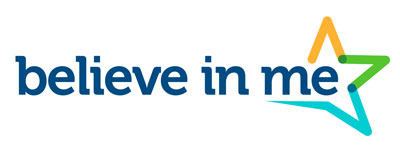Early intervention isn’t just a buzzword—it’s a lifeline for at-risk youth. With marginalized young people facing a myriad of challenges, taking decisive action early can transform lives and communities. In today’s cutting-edge discussion, we not only unravel why early intervention is so crucial, but also how youth prevention programs are redefining the future. Believe in Me, a pioneer in youth empowerment, provides sterling examples of how intervention strategies, when implemented correctly, can forge a path from adversity to opportunity.
Educators, policymakers, and healthcare professionals alike have increasingly turned to evidence-based practices to guide their investments in early intervention. While the conversation is fraught with controversy and spirited debates on best practices, the facts remain undeniable—early intervention saves lives. Let’s dive into what this means for our youth and how programs like those at Believe in Me are creating lasting change.
Overview: How Early Intervention Empowers Youth
Early intervention delivers the support that at-risk youth desperately need before challenges culminate into lifelong barriers. By identifying issues early—from behavioral difficulties to academic underperformance—programs can provide tailored assistance, ensuring that these young individuals are not defined by their circumstances. In initiatives that target mental health, educational support, and social skills, early intervention creates stepping stones to a stable future.
For example, research on early intervention programs shows that timely support can reduce risky behaviors and set a foundation for academic and social success (Youth.gov; NCBI, 2014). Believe in Me has utilized similar philosophies, integrating trauma-informed practices and community support into its youth prevention programs, ultimately paving a way to empowerment and resilience.
Frequently Asked Questions
- What is early intervention?
It involves proactive strategies that target at-risk youth by addressing academic, social, and emotional issues before they escalate into profound setbacks. - Why is early intervention important?
Early intervention is key to mitigating long-term adverse effects, reducing the risk of criminal behavior, substance abuse, and mental health issues among at-risk youth. - Which youth prevention programs are effective?
Programs that incorporate mentorship, trauma-informed care, and community support, like many of Believe in Me’s initiatives, have shown measurable success. - How does early intervention benefit communities?
By supporting at-risk youth early on, communities can reduce the likelihood of future social problems, improve educational outcomes, and decrease costs for corrective services.
Case Studies of Successful Youth Programs
The impact of early intervention is best seen through the lens of real-life success stories. Let’s consider two standout examples that not only underscore the power of youth prevention programs but also highlight the innovative approach of Believe in Me.
Cougs 4 Kids Summer Camp – Empowering Youth Through Civic Engagement
The Cougs 4 Kids Summer Camp, implemented by Believe in Me, focuses on building essential life skills and civic engagement among marginalized communities. This program involves transporting youth from underserved areas to the Washington State University campus to participate in interactive workshops addressing issues such as mental health stigmas, inequality, and access to social services.
One participant, Aisha, utilized the tools she gained from the program to launch a local advocacy campaign that led to increased funding for accessible mental health services in her community. Programs like these are crucial—not only do they mitigate the day-to-day challenges of marginalized youth, but they also empower these young people to become change agents in their own communities.
By nurturing leadership and resilience, Believe in Me sets a precedent for how targeted interventions can reverse systemic inequities. Learn more about the Cougs 4 Kids Summer Camp
iLevelUP – Empowerment Through Education Initiative
iLevelUP, developed by Believe in Me, is an innovative app designed to support first-generation college students from marginalized backgrounds. The program partners with schools in underserved communities to provide resources for personal and professional development, including career exploration, college matching, scholarship applications, and academic support.
One notable success story is Carlos, a bright student whose grades and self-esteem soared after using the app. Through AI-driven animated mentors and tailored learning plans, Carlos transformed from a disengaged student into a passionate advocate for educational reform. This initiative demonstrates that when marginalized youth receive targeted support, the results can ripple outward, catalyzing broader community impacts and opening doors to further opportunities.
To learn more about iLevelUP, visit the Believe in Me News article: Understanding the Challenges Faced by Marginalized Youth
The Role of Early Intervention in the Community
Early intervention isn’t solely about individual success—it makes a profound difference in the fabric of entire communities. When at-risk youth receive the support they need early, the ripple effects positively impact the entire community. Schools see reduced dropout rates, neighborhoods enjoy lower crime rates, and healthcare systems benefit from diminished long-term costs.
Organizations like Believe in Me are reinvigorating community ties by hosting events and establishing programs that specifically target early intervention. By using a trauma-informed approach, they not only address immediate symptoms but also tackle the root causes of many social issues. This holistic approach fosters a culture of prevention, resilience, and empowerment that benefits everyone—from the individual youth to the community at large.
Moreover, partnerships between local government, educational institutions, and healthcare providers bolster the effectiveness of early intervention efforts. When these stakeholders collaborate, they create a comprehensive network of support that ensures sustainable and measurable progress.
Actionable Ways to Get Involved
As an educator, policymaker, or healthcare professional, your active participation can amplify the success of early intervention initiatives. Here are several actionable steps to consider:
- Advocate for Policy Change: Support legislation and policies that fund and expand early intervention and youth prevention programs.
- Collaborate with Community Organizations: Partner with established groups like Believe in Me to share resources, expertise, and support networks.
- Invest in Training and Resources: Encourage schools and community centers to implement trauma-informed training for staff and volunteers.
- Engage in Research and Data Collection: Back initiatives that track outcomes, ensuring that early intervention programs are effective and continually improved.
- Spread the Word: Use your platforms to educate others about the crucial role of early intervention for at-risk youth.
The more eyes and energies turned toward early intervention, the greater the collective impact on those who need help the most.
Conclusion: A Call to Prioritize Early Intervention
In summary, early intervention is not just an option—it’s a necessity for supporting at-risk youth and fostering healthier, more resilient communities. The success stories from initiatives like Believe in Me’s Youth Empowerment Summit and the Community Mentorship Initiative underscore this truth. By investing in youth prevention programs and prioritizing early intervention, we pave the way for long-term benefits that extend far beyond individual lives.
As we move forward, let’s transform our passion into action. Whether you’re an educator, policymaker, or healthcare professional, your support can make a profound difference. Join the movement to give every young person the opportunity they deserve. Engage in the conversation, champion early intervention, and help build a brighter future for all.
Citation: Youth.gov, “Early Intervention Programs for Youth.” (n.d.) accessed March 28, 2025; National Institutes of Health, “Early Intervention and Prevention Programs: A Review.” PMC4055005, 2014.
Get to know more about Believe in Me and Help a Kid Today
References
Youth.gov, “Early Intervention Programs for Youth.” (n.d.) accessed March 28, 2025; National Institutes of Health, “Early Intervention and Prevention Programs: A Review.” PMC4055005, 2014.






